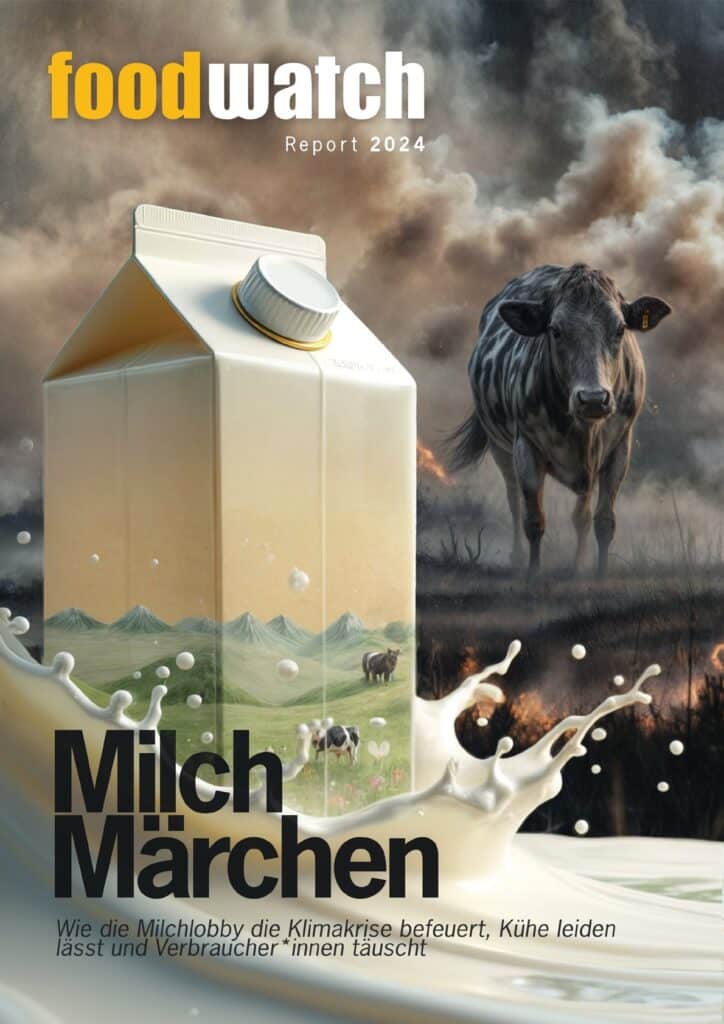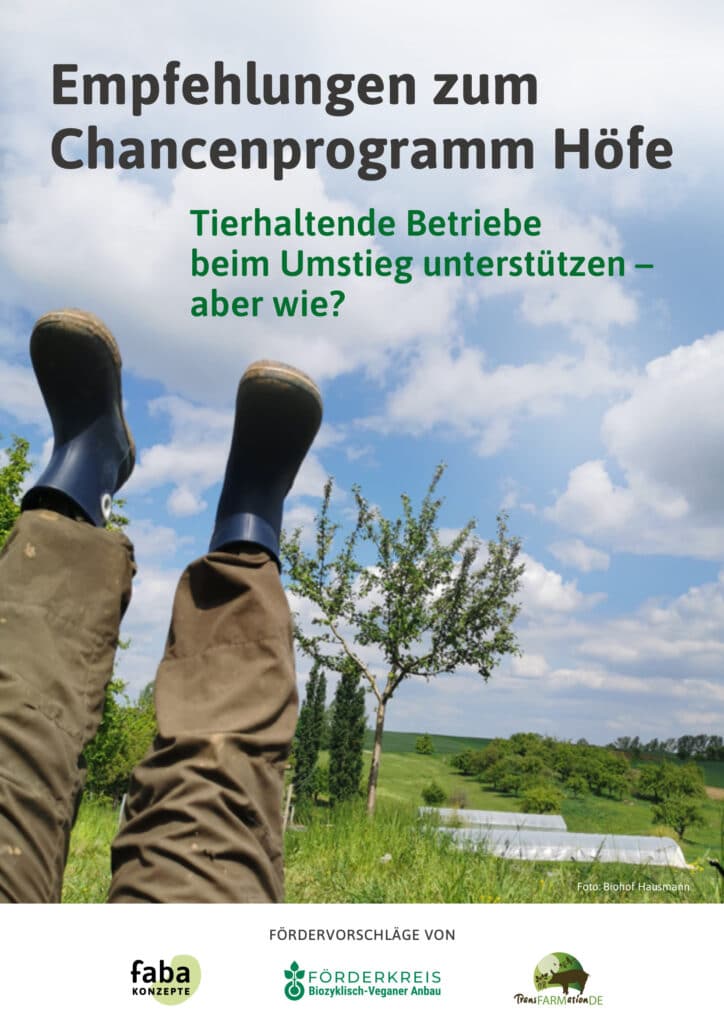Dairy tales: How the dairy lobby is fuelling the climate crisis, making cows suffer and deceiving consumers
Report with Foodwatch Germany
The new report by Foodwatch and Faba Konzepte exposes the greenwashing of the dairy lobby.
Consumption of milk, cheese and other dairy products is currently falling in Germany. An important factor here is the growing criticism of the impact that the dairy industry has on the climate and animals. The industry is countering this negative trend with massive marketing campaigns. For example, it promises to reduce greenhouse gas emissions by focusing on high performance, optimised feed and new technology. But what do these measures really do for the climate? And what consequences do they have for the animals themselves? Do the industry’s climate protection approaches possibly lead to even more animal suffering?
This paper presents the claims and strategies of the dairy industry and compares them with scientific findings. It highlights the discrepancy between the industry’s climate promises and the actual impact on animals and the environment.
The aim is to make the deception of consumers visible and to draw a clearer picture of the real consequences of the current and announced practices of the dairy industry.
Recommendation paper on the "Chancenprogramm Höfe"
30 million euros are available in the German federal budget for the new “Farm Opportunities Programme”. It is intended to support agricultural businesses in switching from animal farming to the production and processing of innovative proteins and climate-friendly food.
But what specific policy measures are to be implemented and what incentives should be created for farms? Together with the Förderkreis Biozyklisch-Veganer Anbau e.V. and the organisation TransFARMation Deutschland, we published a recommendation paper on 6 March 2024.
In it, we propose, among other things, creating model regions where relevant stakeholders can network and establish new value chains for plant-based foods. We also outline various nationwide measures that can make the transition easier for interested businesses – for example in the form of investment subsidies and advisory and training programmes.


